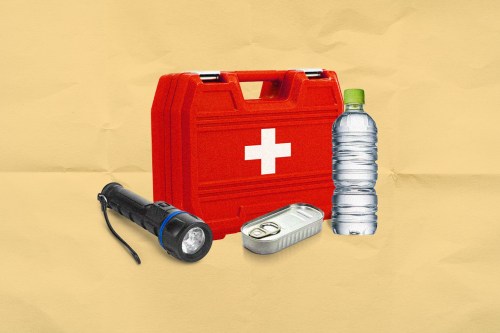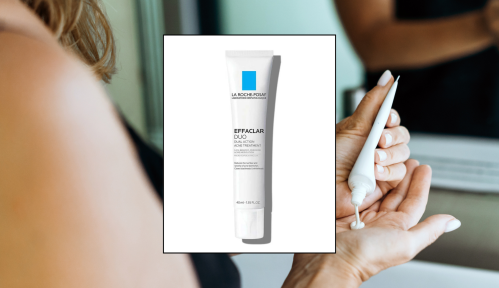Whether you’re frequently updating your résumé or haven’t touched it in years, it may be due for a closer look. The document is especially prone to the kind of errors that your eyes might normally glaze over, given the high number of times you’ve likely read its content (or some variation of it). A recent study conducted by job-search engine Adzuna analyzing over 90,000 U.S. résumés found that 64 percent contained at least one spelling mistake, with the words “training,” “modeling,” “judgment,” and “inquiries” among the most frequent offenders. According to career experts, these types of easily avoided slip-ups can certainly rub recruiters and hiring managers the wrong way, as can a few other common résumé mistakes you’d be wise to avoid.
Experts in This Article
Liz Cannata is the vice president of human resources at job-search platform CareerBuilder. As an HR leader at CareerBuilder for more than 10 years, Liz has played a pivotal role in fostering a rich company culture and making all aspects of the employee lifecycle a priority. She assumed the role of VP, Human Resources, in February 2021. Liz holds a Masters in Business from Loyola University of Chicago, and a Bachelor of Science from University of Illinois at Urbana-Champaign.
Mike Simpson is the co-founder and CEO of career-advice platform The Interview Guys. His expertise includes job searching, job interview skills, resume and cover letter writing, and career advice. Through TheInterviewGuys.com, Mike’s teachings have reached over 70 million job seekers worldwide.
Paul Lewis is the chief customer officer of Adzuna, the job-search engine based in Indianapolis, IN, giving job seekers access to more than 8M US jobs each month, as well as across 20 countries globally. Paul heads up the global marketing team, where he is responsible for growing Adzuna’s audience of job seekers across North America and beyond, helping millions more job seekers into new roles as the world gets back to work after the pandemic. He loves combining the numbers and creative sides of marketing to develop the best customer and brand experiences around and in his own words he’s utterly customer obsessed. Paul has over 20 years’ experience scaling high growth digital businesses. In previous roles he was Interim CMO at notonthehighstreet.com, CMO at Hometree, and Director of Marketing at MOO.com. His career also includes household names VoucherCodes, Ancestry and Betfair.
Remember, your résumé is the first impression you’re offering to a hiring manager, says Liz Cannata, vice president of human resources at job site CareerBuilder. Since, she says, “spelling and grammar errors can reflect a lack of attention to detail,” make sure to carefully edit your résumé for these kinds of wording blips and have a trusted friend do so, too, rather than relying solely on spell-check, which is far from infallible.
“Spelling and grammar errors can reflect a lack of attention to detail.” —Liz Cannata, vice president of human resources at CareerBuilder
Simple typos might not seem like deal breakers, but according to Mike Simpson, co-founder and CEO of career-advice platform The Interview Guys, certain hiring managers may, in fact, remove résumés from their piles based on these issues alone—especially if they’re sorting through a surplus of candidates. In the same realm are inconsistencies in punctuation, he adds: “If you’re going to end one bullet-pointed item with a period, make sure the rest follow suit.”
According to the experts, these errors are far from the only minor but avoidable issues often standing between a candidate and a role. Below, find a handful of other common résumé mistakes worth noting before sending off your application for a new job.
Here are 5 common résumé mistakes to avoid, according to career experts
1. Leaving career gaps unexplained
To be clear, career gaps, naps, or breaks are entirely acceptable—and perhaps more so now than ever, in light of the pandemic triggering layoffs and furloughs across industries. That said, an unexplained career gap on a résumé can still act as a red flag for a hiring manager who might not always have time to follow up with you for clarification. “If you have a gap of more than a month between roles on your résumé, you should provide context for the reason behind it to help a potential employer better understand your situation,” says Paul Lewis, chief customer officer at Adzuna.
Doing so also provides an opportunity to set yourself apart as an especially interesting or well-rounded candidate. “Sometimes, skills used during that gap can be transferable and should be highlighted,” says Cannata. For example, maybe you used the time to read books, take a course, or conduct other research into a new sector, says Lewis, all of which you should share on your résumé to show how you’ve embraced a pivot. Or, perhaps you used the time simply to care for a family member or for yourself, which, in the eyes of many hiring managers, may be just as valid an explanation.
2. Being overly verbose
You’ve likely heard before that a résumé should be kept to one page; while that’s still a healthy benchmark to aim for, the exact length is less important than its readability and concision. For example, you may need to use a second page if you’re taking the space to explain a career shift, outline particular expertise for an advanced technical role, or share all your relevant experience for a senior or executive position, says Simpson. That said, being mindful of wordy descriptions is essential no matter what.
“Candidates shouldn’t feel the need to list everything they’ve done, but instead, should highlight the key things they’ve accomplished and skills used,” says Cannata, who also advises tailoring your résumé to each role you’re applying for to keep it extra-focused.
3. Forgetting a summary
Though it might not be entirely necessary for every field, experts agree that a professional summary at the top of a résumé can be a helpful way to succinctly share background and relevant career ambitions. “Look at it like the prologue of a book,” says Lewis. “It gives a hiring manager a great overview and feel for what they’re about to read in detail.” And it can also separate you from other candidates: By essentially reminding the hiring manager why you’re interested in and qualified for a role at a glance, it’s an extra opportunity to stick yourself in their memory.
4. Leaving out contact information
If your résumé doesn’t include your email and phone number (or hides it all in fine print near the bottom), there’s a stronger chance you won’t hear from a hiring manager—even if that info is in your cover letter, application, or the body of the email through which you submitted it. By including your contact info directly in your résumé (and all those other locations), you’ll reduce the number of hoops that this person needs to jump through to reach you.
It’s also worth noting that your email address should be a professional one (no hobbies or nicknames, included), even if that means creating a new email account. And if you’re submitting your résumé as an email attachment, having a professional email signature with your contact information will also help you get noticed, says Simpson.
5. Submitting it as anything other than a PDF
Imagine crafting your résumé in a perfectly readable and organized format only to have a hiring manager open it in a different word processor or résumé-reading software that jumbles the whole thing. To avoid that, always submit your résumé as a PDF, whether you’re emailing it directly or attaching it to an online portal.
It’s also important to name your résumé document something simple and searchable, like “[first name] [last name] Résumé,” and remove any extra words, like, “draft,” “V2,” or “document” to keep things as neat as possible. That also signals to the hiring manager that you’ve carefully considered every last part of your résumé, right down to the file name itself.
Oh hi! You look like someone who loves free workouts, discounts for cutting-edge wellness brands, and exclusive Well+Good content. Sign up for Well+, our online community of wellness insiders, and unlock your rewards instantly.
Sign Up for Our Daily Newsletter
Get all the latest in wellness, trends, food, fitness, beauty, and more delivered right to your inbox.
Got it, you've been added to our email list.











